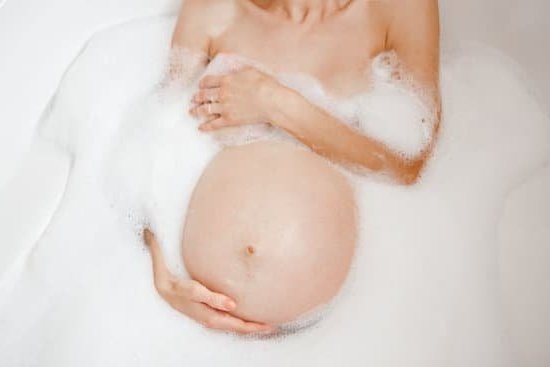Introduction to Best Shoes for Swollen Feet during Pregnancy
Pregnancy is an amazing journey that comes with both joys and challenges. One of these challenges can be swollen feet due to the extra pressure on the body. Fortunately, there are now a variety of shoes specifically designed for pregnancy that provide comfort and support and help reduce swelling. These shoes typically use lightweight materials, allow plenty of room to accommodate additional foot width, and feature cushioned soles for maximum comfort. The best shoes for swollen feet during pregnancy are flexible and supportive, allowing you to move freely without worrying about collisions or chafing. While picking out the right pair of shoes can be a challenge, here is a list of some options to consider when purchasing the best shoes for swollen feet during pregnancy.
Causes and Symptoms of Foot Swelling During Pregnancy
Foot swelling during pregnancy is a common condition caused by fluid retention in the body. It’s especially noticeable in the lower legs and feet, which leads to discomfort. Other factors that can contribute to swollen feet are: hormones, increased weight on the feet, standing for long periods of time, warm weather and improper footwear. Some symptoms of swollen feet include bloating and pain when standing for too long, as well as numbness or tingling in your toes. As the baby continues to grow, feet may get even wider over time due to hormonal changes.
To alleviate some of this discomfort, finding shoes that provide adequate space and flexibility is essential. Shoes made with flexible materials such as soft leather and canvas are best because they allow more room for your growing feet without pinching them or straining your ankles. Shoes with adjustable fasteners like velcro allow you to loosen or tighten the shoe accordingly as needed throughout your pregnancy. If possible walking or running on grass or a softer surfaced ground instead of concrete or hard floors can also help lessen foot strain. Always stay supportive by wearing good orthopedics when necessary and it helps if you can elevate your feet when not in use, such as resting them on a stool while sitting at home. Avoid excessive salt intake – salt will increase water retention – and also try to stay away from high heels as these place additional strain on the foot ligaments which can worsen the situation further.
How to Choose Comfy Shoes and Supportive Footwear
When you’re pregnant, swollen feet can make you feel uncomfortable and your shoes may get tight quickly. Supporting and cushioning the arches of your feet may reduce the pressure on tender areas, as well as decreasing leg strain. Here are some tips for choosing comfortable and supportive footwear when experiencing swollen feet during pregnancy:
1. Look for shoes that are roomy and adjustable – Choose appropriate materials with breathability that won’t cause sweating or chafing. Shoes with wide straps or laces will enable an individual to adjust fit even when their feet swell, providing comfort and reducing pressure points or abrasions
2. Consider a low-heeled style– instead of wearing flat-heeled shoes, look for a shoe with a low, stable heel that can provide extra cushioning over high heels. Research shows that this type of design reduces the forces put on the knees and other joints like ankles, hips and lower back.
3. Look for supportive features – Cushioned insoles are one option to look into; they help prevent arch collapse while absorbing shock from walking longer distances or standing in one place e.g., when grocery shopping or running errands. An almond toe will also be more comfortable than a pointed shoe, as there’s more space around the toes for natural foot movement throughout different movements throughout the day.
4. Purchase multiple pairs – Wearing different types of shoe styles will help reduce skin irritation from perspiration buildup by allowing alternating levels of air flow around your feet each day or week . Moreover, it’s important to take into account any activities you normally go through so you have multiple pairs ready when needed outdoors i.e., rock climbs or hikes; otherwise sandals can come in handy too!
Pros and Cons of Sandals
Pros: Sandals can be an ideal choice for swollen feet during pregnancy since they provide more air circulation than traditional shoes. They allow the feet to breathe and don’t put any extra pressure on them, plus they give more room for the toes and ankles to swell without constriction. Wearing sandals can also make it easier to keep your legs hydrated and cool, potentially reducing water retention in your extremities.
Cons: On the other hand, choosing sandals with a flat sole may not provide the best cushioning or arch support that your feet need during pregnancy. Plus, depending on where you live sandal weather might only last a few months out of the year, meaning you’d need another style of shoe when colder weather strikes. Additionally, open-toed shoes also leave your delicate toes exposed to dirt and debris that could cause irritation or infection.
Pros and Cons of Athletic Shoes
Pros:
Athletic shoes are a great choice for pregnant women with swollen feet as they offer excellent cushioning, stability and support. The thick sole and midsole help to absorb any impact and reduce pressure on the feet. This can make them ideal for those experiencing ankle discomfort caused by the extra weight during pregnancy. Athletic shoes also come in a variety of styles and colors, so you have plenty of options when trying to find the right pair for your lifestyle.
Cons:
Although athletic shoes do provide cushioning and support, they may be less comfortable than other types of footwear due to their stiffer construction. However, some brands do offer more flexibility to increase comfort for pregnant women with swollen feet. Additionally, depending on the brand, athletic shoes can be quite expensive compared to other types of footwear.
Pros and Cons of Slip-Ons
Pros: Slip-on shoes are an excellent choice for women suffering from swollen feet during pregnancy, as they are comfortable and easy to put on. Most slip-on styles allow for plenty of room in the toe box, which is great for relieving any pressure caused by enlarged feet. Additionally, many slip-on styles feature flexible soles that help absorb shock to prevent further swelling and discomfort.
Cons: The downside of slip-on shoes is that they tend to offer less arch support than traditional laced or strapped shoes, so some additional padding or cushioning may need to be added. While slip-on styles do typically offer more stretch than other types of footwear, they are not always extremely supportive and can often flatten out over time when stretched too much. Additionally, snug fitting models tend to leave a visible line across the top of the foot which can cause irritation if worn consistently throughout the day.
Extra Features to Consider When Shopping for Shoes During Pregnancy
When looking for shoes during pregnancy, consider the following extra features:
1. Comfort: Make sure that whichever shoes you choose are comfortable to wear for long periods of time. This includes providing adequate arch support, cushioning in the soles, and proper sizing that fits your feet correctly.
2. Material: Look for breathable materials such as leather or canvas which will help keep your feet cool and comfortable as your body temperature rises due to pregnancy hormones. Additionally, make sure the material can provide structure and support while still being flexible enough to accommodate swelling.
3. Heel Height: It is best to avoid shoes with spiked or high heels since this could cause potential balance issues as your belly grows. Choose flat or low-heeled shoes instead so you can walk safely without having any problems with your center of gravity shifting forward or putting strain on your ankles and knee joints.
4. Flexibility: Make sure the sole is flexible enough to move with you when walking so it won’t inhibit your stride or put extra pressure on the backs of your heels from rubbing against the shoe itself. As well, look for straps with some give to them so they can stretch out easily over swollen feet and ankles without becoming too tight when expanded upon repeatedly thanks to fluid shifts throughout pregnancy.
Tips for Avoiding Discomfort and Protecting Swollen Feet
One of the biggest problems that pregnant women often encounter is swollen feet. During pregnancy, the body goes through various changes, and this includes increased water retention, leading to inflammation in the lower legs and feet. Luckily, there are several steps one can take to reduce swelling and prevent discomfort.
First and foremost, stay hydrated. Increasing your water intake can help to flush out the fluids which cause swelling in the first place. Secondly, wear comfortable shoes that provide adequate support to your swollen feet – opting for ones with a low heel or no-heel design instead of high heels is helpful. Furthermore, avoid prolonged standing or sitting by taking frequent breaks and stretching regularly. Additionally, try to elevate your feet whenever possible – you can do this while lounging at home by positioning them against a few pillows. Finally, if possible, try reducing sodium intake as it’s known for causing water retention which leads to swelling of the feet.
In addition to these tips for preventing discomfort due to swollen feet during pregnancy, expectant moms should also consider purchasing shoes specifically designed for relieving pressure from their overworked legs and providing cushioning and support where needed most. There are many brands out there that make shoes with extra wide sizes and cushioning designed specifically for expectant moms – everything from sandals with adjustable straps to slip-on sneakers with plenty of arch support – making finding something comfortable a breeze!
Conclusion
Pregnant women are often faced with uncomfortable swollen feet and achy muscles. Finding the best shoes for swollen feet during pregnancy is essential to maintaining comfort and reducing potential pain. Shoes that provide good arch support, cushioning, and shock absorption are important factors in reducing fatigue and discomfort around the ankles, heels, and lower legs. Additionally, shoes with adjustable straps or boots with a wide leg opening can help accommodate swelling. To reduce further discomfort when purchasing shoes, ladies should try on multiple pairs to determine size and ensure proper fit without too much room or restriction. With a quality pair of properly fitted shoes, pregnant women can keep their feet comfortable throughout the day!

Welcome to my fertility blog. This is a space where I will be sharing my experiences as I navigate through the world of fertility treatments, as well as provide information and resources about fertility and pregnancy.





